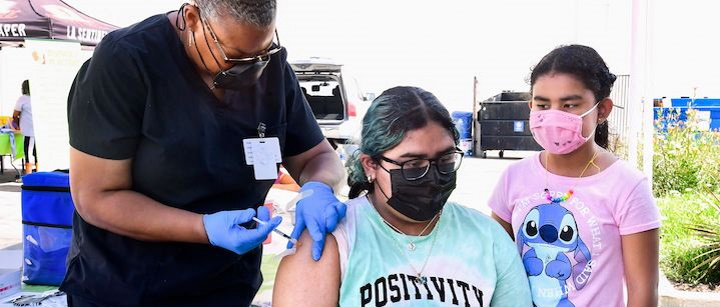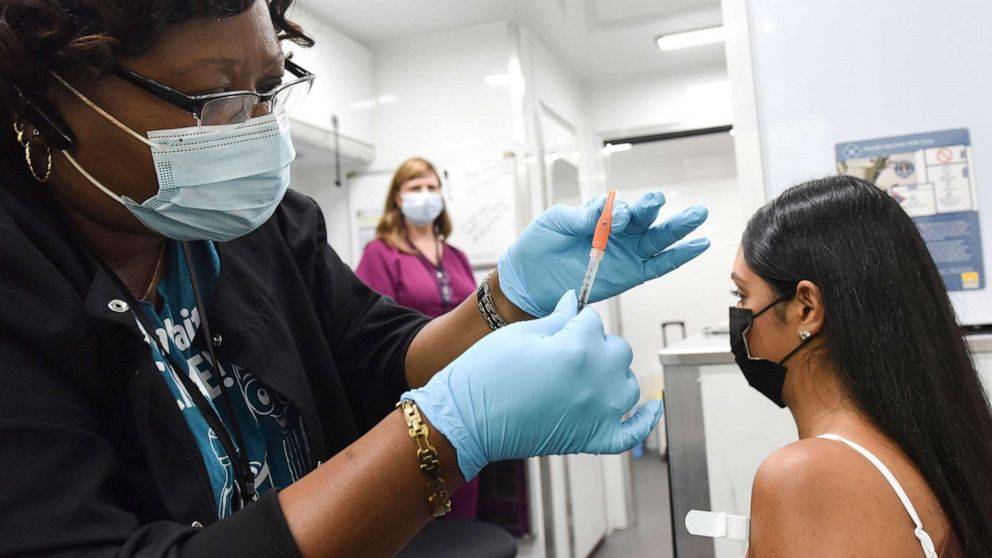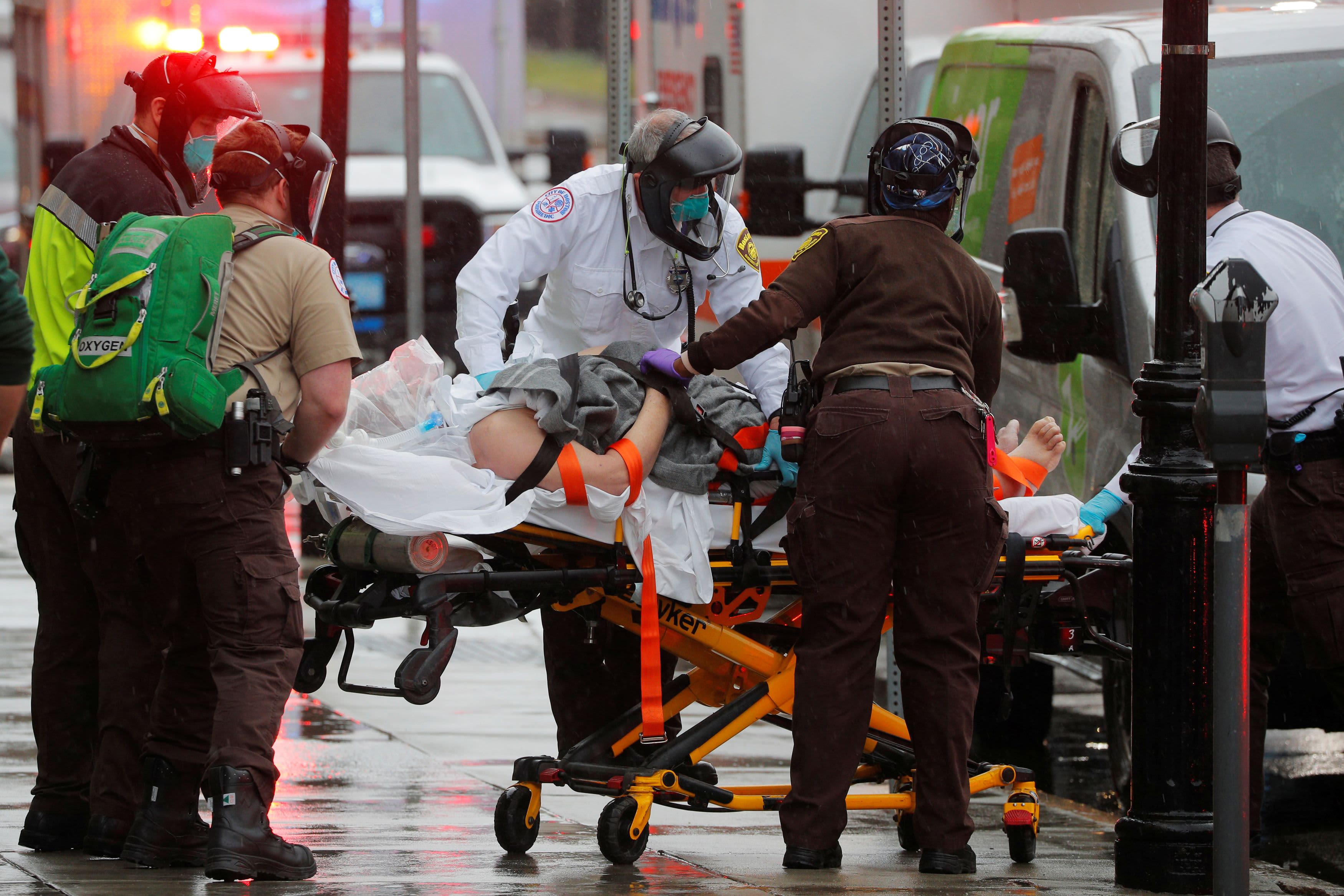- Joined
- Apr 8, 2014
- Messages
- 8,542
- Reaction score
- 8,957
- Points
- 113
You would think it would be great news that infected people are largely immune. Should mean that we need millions fewer vaccines which would provide more for people who actually need them and save billions of dollars. Weird how some people really, really don't want it to be true.

 www.factcheck.org
www.factcheck.org
Scientists don’t have information from the clinical trials about how well the FDA-authorized COVID-19 vaccines perform against the delta variant because the phase 3 trials were done at a time before the variant was circulating widely. The variant, also known as B.1.617.2, was first identified in India in October 2020 and is more than twice as transmissible as the original versions of the coronavirus, according to the CDC. Some data also suggest delta may cause more severe disease, but this has not been conclusively established.
There are, however, multiple studies of how the vaccines are faring in the real-world against delta, and most show the vaccines are working largely as expected.
A study published in the New England Journal of Medicine on July 21 by Public Health England, for example, found that after the two recommended doses, the effectiveness of the Pfizer/BioNTech vaccine in preventing symptomatic disease in the U.K. fell only slightly, to 88.0% against delta from 93.7% against the alpha variant — another more contagious version of the virus, known as B.1.1.7, that previously predominated in the country. The authors, however, noted that a larger decline and lower effectiveness was observed after a single dose, underscoring the importance of receiving both immunizations.
In an unpublished study that has not yet been peer reviewed, the U.K. health agency also found the Pfizer/BioNTech vaccine was very effective at preventing hospitalization with the delta variant, reducing the risk by 94% after one dose and by 96% after two.
Other countries have reported similar preliminary results. In an unpublished study from Ontario, Canada, researchers estimated the effectiveness of the Pfizer/BioNTech vaccine against symptomatic infection with delta to be 87% after two doses, while a report from Scotland, published in the British medical journal the Lancet, pegged the figure at 79% for infection with delta.
The Canadian report also found that one dose of the Moderna vaccine was 70% effective in preventing symptomatic disease and 95% effective in preventing hospitalization or death; there were too few COVID-19 cases among the vaccinated to estimate the effectiveness after two doses.
Meanwhile, in Israel, the health ministry released preliminary, unpublished information on July 5 suggesting that with the rise of the delta variant in the nation, the Pfizer/BioNTech vaccine was now 64% effective against infection or symptomatic illness, but still 93% effective in preventing serious illness and hospitalization. The ministry had previously estimated the vaccine to be 97% effective against symptomatic disease, with similar levels of protection against hospitalization and death, at a time when the alpha variant made up the vast majority of COVID-19 cases.
McCullough, therefore, is right that Israel estimated the Pfizer/BioNTech vaccine effectiveness at “only about 60 to 70%.” But that is still a substantial amount of protection — and McCullough neglects to mention the vaccine’s excellent ability to prevent the worst outcomes of COVID-19.
In late July, the ministry further reduced its vaccine effectiveness estimate for symptomatic COVID-19 to 40.5%, but once again, found protection against severe disease to remain robust — 88.0% effective against hospitalization and 91.4% effective against severe COVID-19.
It’s worth mentioning that some experts doubt the accuracy of the Israeli estimates, which are outliers compared with the other results and rely on a different methodology. In its July 27 scientific brief on the vaccines, the CDC said “more technical information is needed to allow full interpretation.”
The most recent Israeli figure, in particular, is based on a small number of cases over a short period of time and should be considered preliminary, according to an expert advising the Israeli government on the coronavirus. The ministry itself also acknowledged the results might be skewed because of differential testing among the vaccinated and unvaccinated populations.
If you aren't naturally immune, you are still far less likely to get infected with delta if you're vaccinated. And extremely less likely to get a symptomatic or severe infection. Iff you haven't had the rona, get the vax! Moderna if possible.Sorry your beloved vaccines have developed a bit of a re-infection hole. I mean, a gaping, massive holy-**** size whole with reinfections.

Vaccines Remain Largely Effective Against Delta Variant, Counter to Claims From Fox News Guest - FactCheck.org
Multiple studies show the FDA-authorized COVID-19 vaccines continue to be effective against the delta variant of the coronavirus, even if the potency of the vaccines is somewhat reduced. But a guest on Fox News falsely claimed the delta variant “really is not responsive at all, or protected at...
Scientists don’t have information from the clinical trials about how well the FDA-authorized COVID-19 vaccines perform against the delta variant because the phase 3 trials were done at a time before the variant was circulating widely. The variant, also known as B.1.617.2, was first identified in India in October 2020 and is more than twice as transmissible as the original versions of the coronavirus, according to the CDC. Some data also suggest delta may cause more severe disease, but this has not been conclusively established.
There are, however, multiple studies of how the vaccines are faring in the real-world against delta, and most show the vaccines are working largely as expected.
A study published in the New England Journal of Medicine on July 21 by Public Health England, for example, found that after the two recommended doses, the effectiveness of the Pfizer/BioNTech vaccine in preventing symptomatic disease in the U.K. fell only slightly, to 88.0% against delta from 93.7% against the alpha variant — another more contagious version of the virus, known as B.1.1.7, that previously predominated in the country. The authors, however, noted that a larger decline and lower effectiveness was observed after a single dose, underscoring the importance of receiving both immunizations.
In an unpublished study that has not yet been peer reviewed, the U.K. health agency also found the Pfizer/BioNTech vaccine was very effective at preventing hospitalization with the delta variant, reducing the risk by 94% after one dose and by 96% after two.
Other countries have reported similar preliminary results. In an unpublished study from Ontario, Canada, researchers estimated the effectiveness of the Pfizer/BioNTech vaccine against symptomatic infection with delta to be 87% after two doses, while a report from Scotland, published in the British medical journal the Lancet, pegged the figure at 79% for infection with delta.
The Canadian report also found that one dose of the Moderna vaccine was 70% effective in preventing symptomatic disease and 95% effective in preventing hospitalization or death; there were too few COVID-19 cases among the vaccinated to estimate the effectiveness after two doses.
Meanwhile, in Israel, the health ministry released preliminary, unpublished information on July 5 suggesting that with the rise of the delta variant in the nation, the Pfizer/BioNTech vaccine was now 64% effective against infection or symptomatic illness, but still 93% effective in preventing serious illness and hospitalization. The ministry had previously estimated the vaccine to be 97% effective against symptomatic disease, with similar levels of protection against hospitalization and death, at a time when the alpha variant made up the vast majority of COVID-19 cases.
McCullough, therefore, is right that Israel estimated the Pfizer/BioNTech vaccine effectiveness at “only about 60 to 70%.” But that is still a substantial amount of protection — and McCullough neglects to mention the vaccine’s excellent ability to prevent the worst outcomes of COVID-19.
In late July, the ministry further reduced its vaccine effectiveness estimate for symptomatic COVID-19 to 40.5%, but once again, found protection against severe disease to remain robust — 88.0% effective against hospitalization and 91.4% effective against severe COVID-19.
It’s worth mentioning that some experts doubt the accuracy of the Israeli estimates, which are outliers compared with the other results and rely on a different methodology. In its July 27 scientific brief on the vaccines, the CDC said “more technical information is needed to allow full interpretation.”
The most recent Israeli figure, in particular, is based on a small number of cases over a short period of time and should be considered preliminary, according to an expert advising the Israeli government on the coronavirus. The ministry itself also acknowledged the results might be skewed because of differential testing among the vaccinated and unvaccinated populations.





